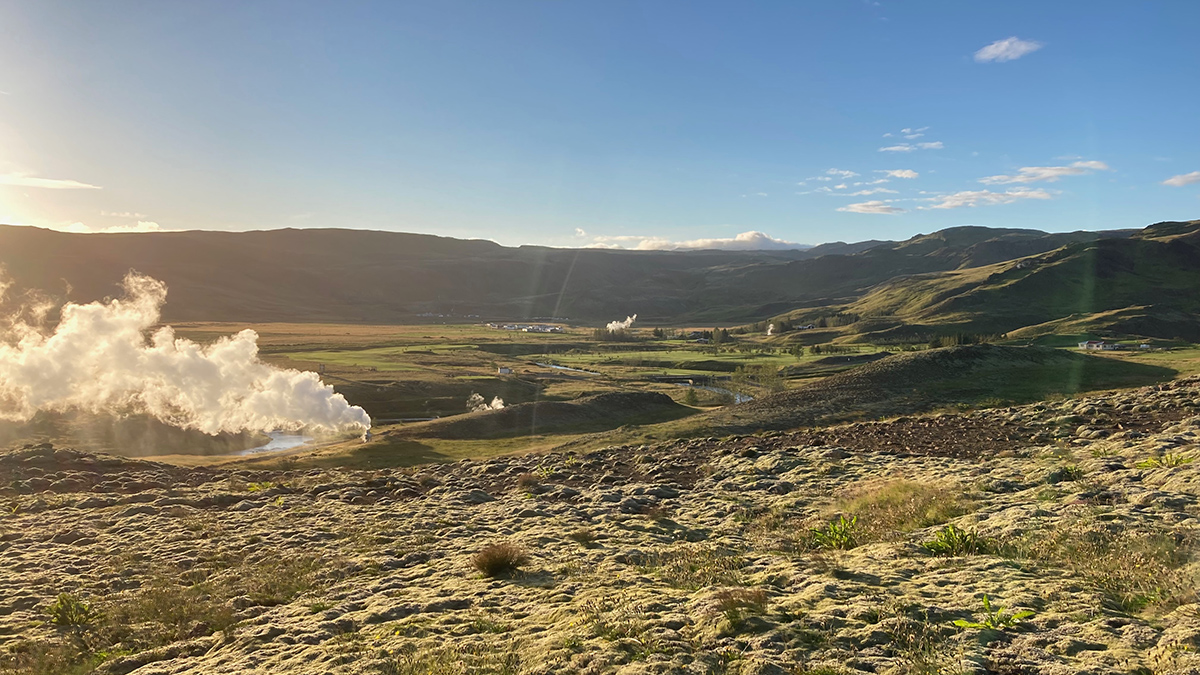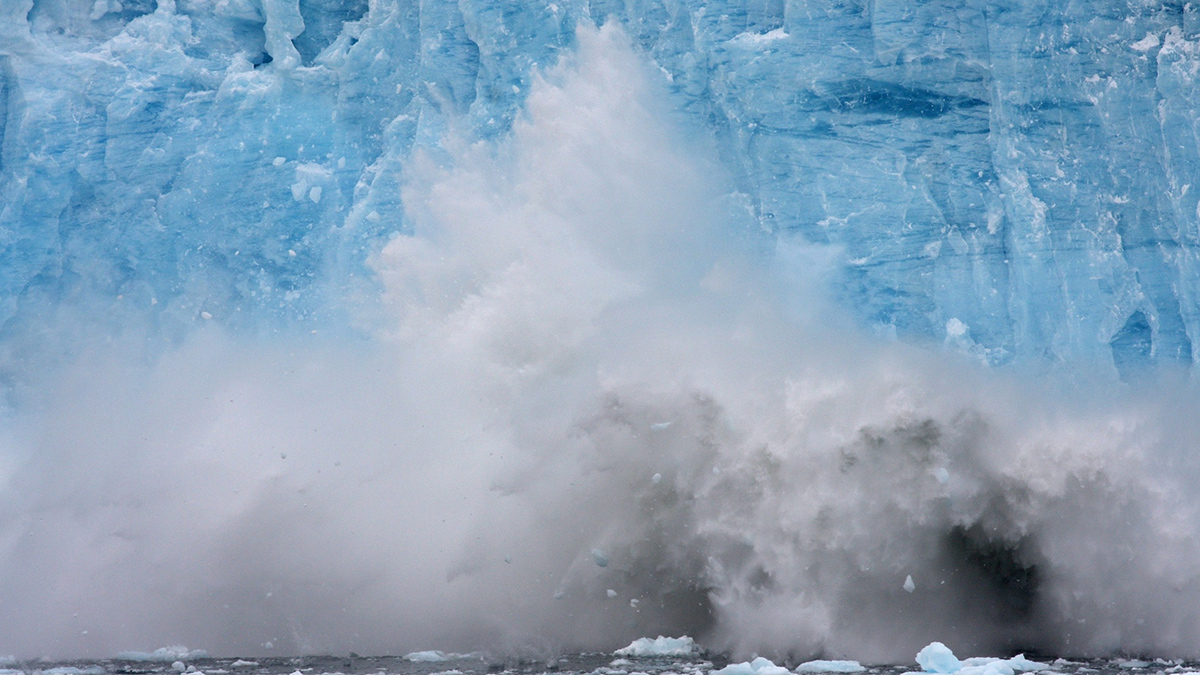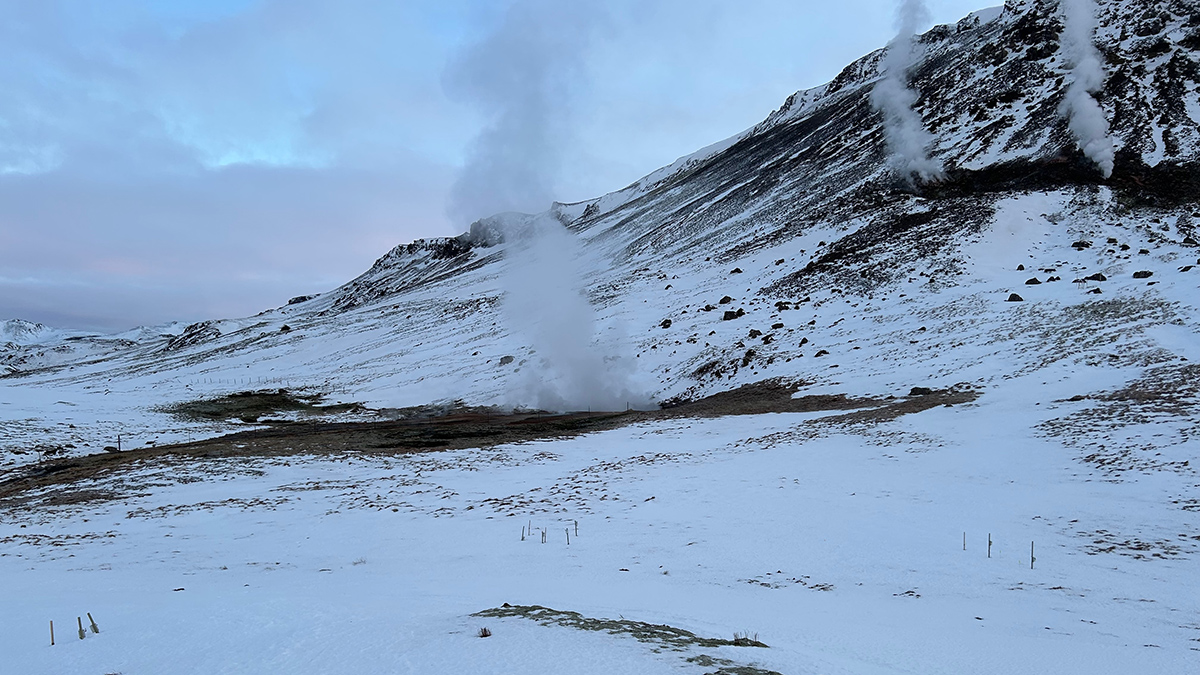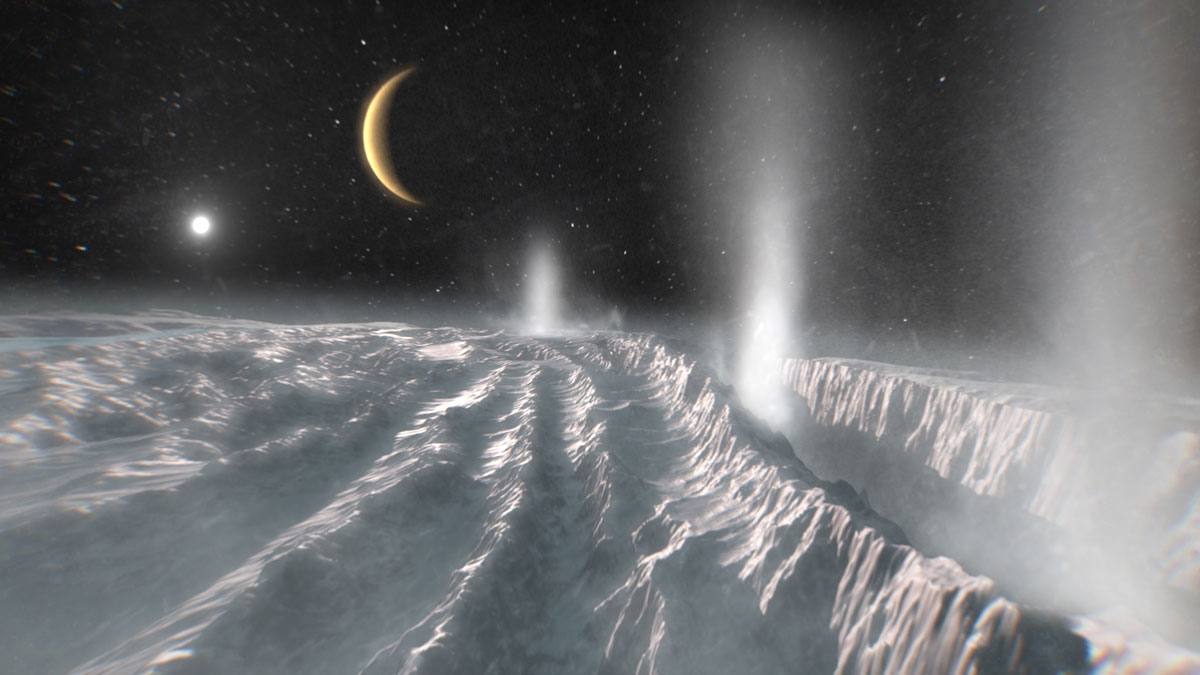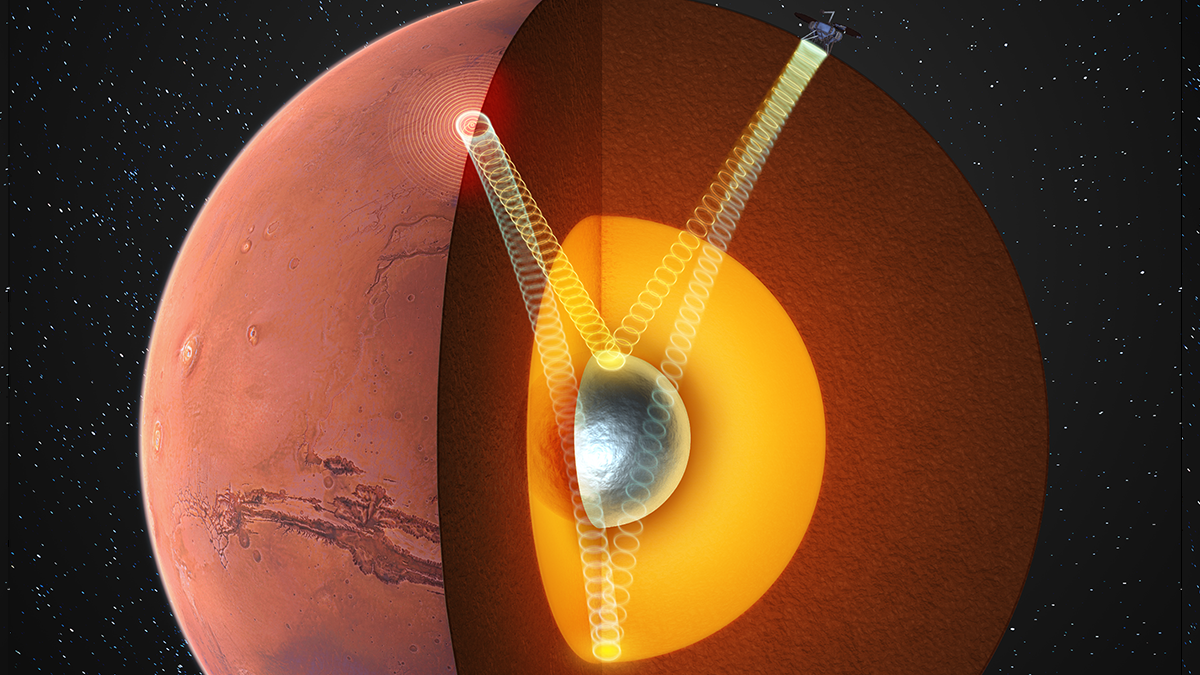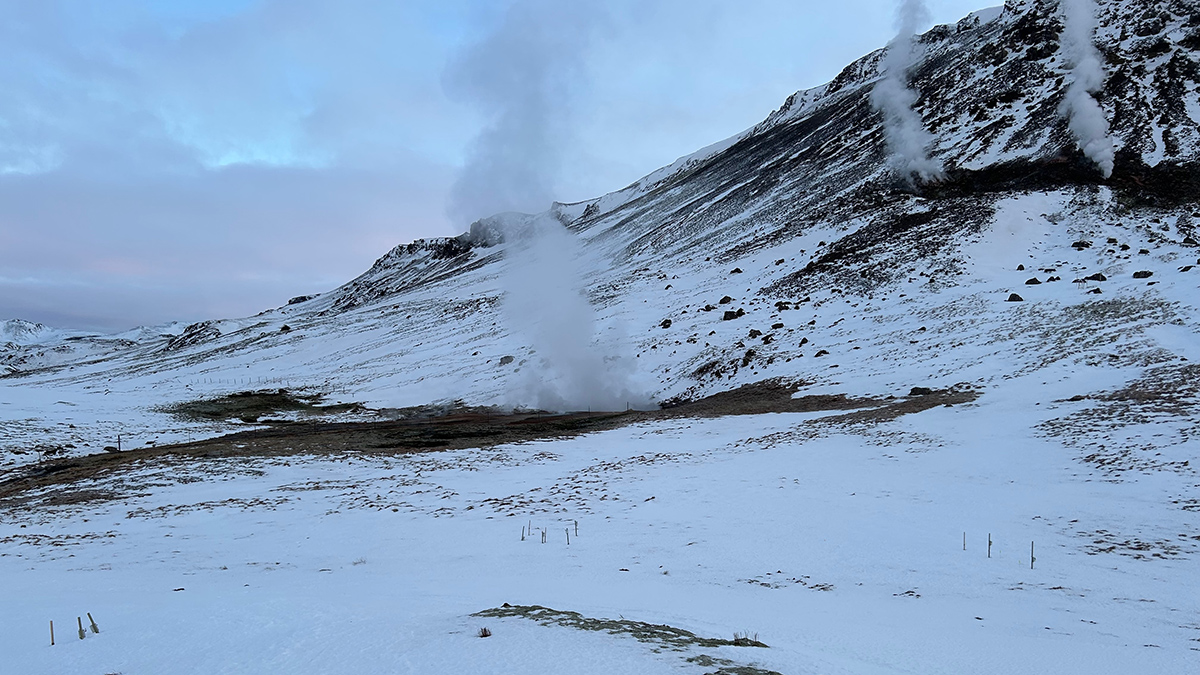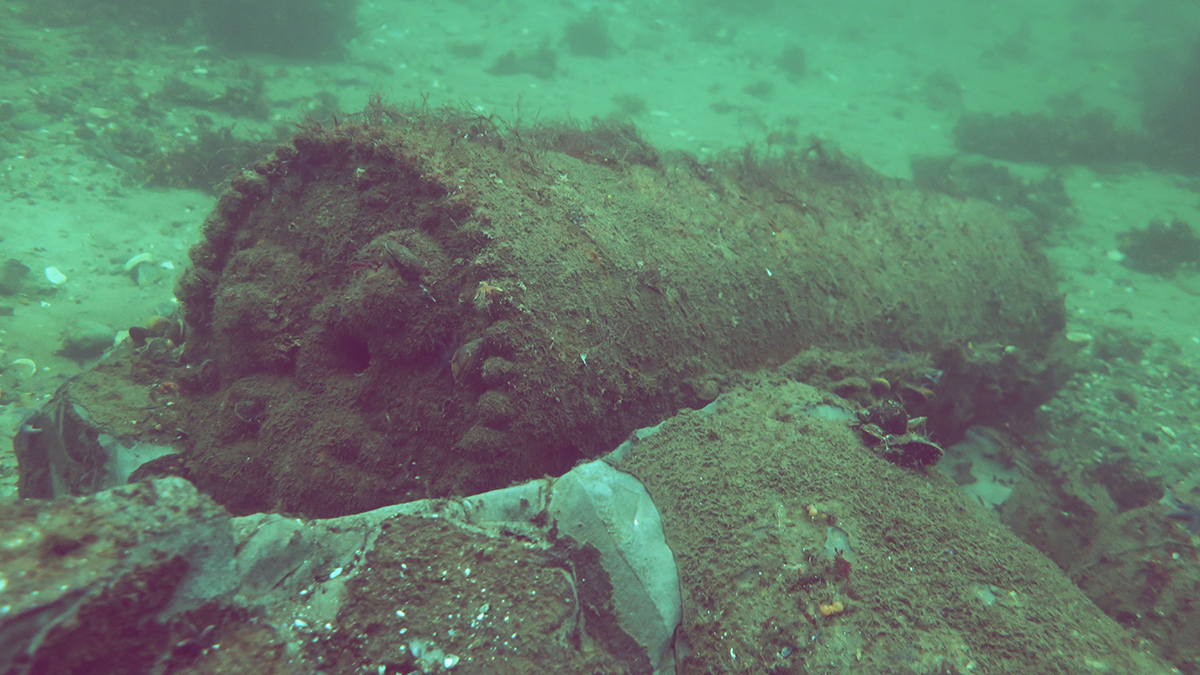A study in Iceland found that microbes are hoarding more nitrogen for themselves, altering nutrient cycling and leaving less for plants.
Javier Barbuzano
Javier Barbuzano is a freelance science journalist based in Barcelona, Spain. He received his master’s in science journalism from Boston University in 2017 and holds a degree in environmental science from the University of Granada in Spain. His work appears in publications like Eos, Sky & Telescope, and El País.
Glacier Runoff Becomes Less Nutritious as Glaciers Retreat
Sediment from retreating, land-terminating glaciers contains proportionally fewer micronutrients such as iron and manganese, reducing the glaciers’ value to microorganisms at the base of the food web.
Martian Dust Devils Reveal Dynamic Surface Winds
A new wind map covering the whole of Mars includes some of the fastest winds ever detected on the Red Planet.
A medida que el Ártico se calienta, los suelos pierden nutrientes clave
El cambio climático calienta tanto el aire y el océano, como el suelo, donde los procesos clave que determinan la fertilidad y la captura de carbono operan en un delicado equilibrio.
Space Radiation Can Produce Some Organic Molecules Detected on Icy Moons
As missions prepare to visit ocean worlds like Enceladus and Europa, new findings show scientists must first learn to distinguish between radiation-made organics and those born in a subsurface sea.
Scientists May Have Finally Detected a Solid Inner Core on Mars
Seismic clues from NASA’s InSight mission suggest that Mars hides a solid inner core, and raise new questions about why the planet’s magnetic field disappeared.
As the Arctic Warms, Soils Lose Key Nutrients
Climate change heats not only the air and the ocean but also the soil, where key processes that determine fertility and carbon sequestration operate in a fine-tuned balance.
Is Your Shampoo Washing Up in Antarctica?
Researchers have found chemicals from personal care products like shampoo, deodorant, and laundry soap in Antarctic snow.
WWII Ordnance Is Polluting the Baltic Sea
Discarded explosives were dumped into the Baltic and North seas after World War II. Their deadly legacy is still with us.
Europe Faces Increased Heat Mortality in Coming Decades
Extreme temperature caused by unchecked climate change could claim 2.3 million lives in Europe by 2100, a new study warns.

